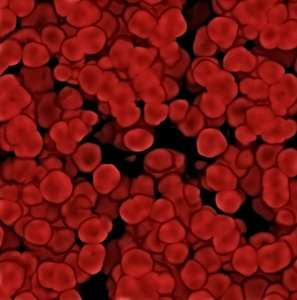Diagnosis of mesothelioma may come months, years, or even decades after the exposure to asbestos. Though early diagnosis can improve treatment options and increase the chances of longevity, most victims will still face the tragic prognosis of an untimely death. According to new research, “biomarkers” could improve the accuracy of diagnoses for mesothelioma patients. Researchers who published the new study claim that an analysis of proteins and glycoproteins could save the lives of patients.
Doctors, hospitals, and medical researchers are always exploring new ways to better diagnose and treat patients. According to a recent study, using more biomarkers can improve accuracy in diagnosis. The study was published in the recent issue of Anticancer Research. Our Boston mesothelioma lawyers are dedicated to helping victims recover the compensation they deserve after diagnosis. We also help families of victims make legal claims if they have lost a loved one to mesothelioma. In addition to providing legal support, our team is committed to staying abreast of medical developments and informing clients about breakthroughs in mesothelioma treatment.
Authors of the study assert that the glycoprotein known as YKL-40 can be especially helpful in diagnosing mesothelioma. This protein can be used in addition to other biomarkers that are typically used to diagnose the fatal disease. In this study, researchers took a sample of patients who had already been diagnosed with mesothelioma, including those who had asbestosis lunch scarring and patients with cell lung cancer. Researchers compared these groups to healthy controls using blood test results that measured serum and plasma levels in each patient.
The scientists compared levels of biomarkers including mesothelin, fibulin-3, interleukin-8, endothelin-1, vascular endothelial growth factor and the new biomarker YKL-40. For patients who suffered from mesothelioma and other forms of lung cancer, the biomarkers were “overexpressed,” one of the primary characteristics in diagnosing the disease. Researchers note that any cancer with the overexpressed protein VEGF is more likely to spread. Fibulin-3 is commonly overexpressed when a victim has mesothelioma. Mesothelin is also a biomarker commonly associated with mesothelioma when represented at significantly higher levels.
In addition to the other biomarkers, this was the first study to evaluate levels of YKL-40 in mesothelioma patients. Researchers concluded that using mesothelin and YKL-40 tests together produced more accurate results. According to the data, addition the additional biomarker could improve future detection of mesothelioma cases. When diagnosing cancer, “specificity” refers to the accuracy of any given test. In many cases, the significant presence of many biomarkers are not identified until later stages of mesothelioma which can make it more difficult to treat and reduce rate of survival.
Patients who have been diagnosed with mesothelioma may seek some treatments to reduce the size of tumors and to reduce pain. Though there are some options, the prognosis for these patients is not hopeful. Early diagnosis could improve the chances for survival and also increase opportunities to prevent the growth of tumors or spreading. When you or someone you love has been diagnosed with mesothelioma, remember that you do have options and rights. Victims and their families may be entitled to compensation for their personal and financial losses, including medical care, lost wages, pain and suffering, and wrongful death.
Call our Boston mesothelioma attorneys for a free and confidential appointment at (617) 777-7777.
More Blog Entries:
Australian Genetic Treatment Raises Hope for Mesothelioma Patients , Dec. 20, 2013, Boston Mesothelioma Lawyer Blog
Lawmakers Try to Limit the Rights of Asbestos Victims, Dec. 4, 2013, Boston Mesothelioma Lawyer Blog
 Mesothelioma Lawyers Blog
Mesothelioma Lawyers Blog


